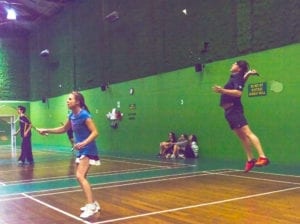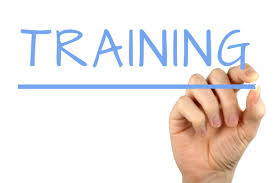I’ve actually written a post about how to get good at badminton already, but it is a post that focuses on skills you must develop. Things like needing proper technique, training footwork, and being able to play a multitude of different strategies.
But in reality, skills are only a small fraction at how to make you a good badminton player. In fact, to get those skills, one must need the attributes related to the mind and physical endurance. Thus, here I am telling you how to really get good at badminton.
Definitely go read the other post on how to get good at badminton though!

Will To Improve
If you have read my recent post on what makes a great badminton player, you’ll know that I’m obsessed with the spirit of improving. I genuinely believe that having the mindset to grow is probably the most useful ability in badminton and everything else.
While some people are brought up with this mindset, the will to improve can be created. You just need to control your mind and emotions.
Many people are defeatists at heart. They would lose and just keep losing and then give up. Having the will to improve means that when you lose, you study every little aspect of why you lost and then practice ten times as hard to get better.
A progressive person also improves in victories. When they win, they don’t sit back and relax, they continue to study what could be improved, and then they try to get better in those aspects. In some places, badminton is quite competitive. If you don’t continuously get better, someone else will surpass you and take your spot.
Another thing to note is anger and emotions after losing and winning. Don’t get me wrong, losing will feel bad. Everyone gets angry and/or sad. In fact, it’s okay if you have those emotions because it means that you actually care.
It’s a matter of what you get angry at. People that don’t have the improving mindset will blame everything but themselves. They’ll blame the lighting, the racket, not having money to train, etc. That was me. But then I realized to improve, I can only blame myself.
The mindset after winning is more subject to debate. As long as you continue to improve after, it doesn’t really matter. What I do find is that players who are more humble in their victories tend to study their mistakes more while players who are arrogant in winning like to show off their strengths.
The Mind In Games
So the will to improve and the mindset of progression is paramount, but what about the mind in the game?
A great badminton player is built to avoid distractions during the game to maximize performance. It’s normal for players to get nervous and have a high level of adrenaline, but if you can manipulate your adrenaline to boost your return, you will definitely have the edge over most opponents.
The ability to remain calm and optimistic during your games will also give you a higher win rate. We often lose in those high pressure, 19-19 games where anything can happen because we get anxious and make more mistakes.
How can we build this emotional block in our heads?
Like mentioned before, getting anxious during games is something reasonable for all players. To reduce the effect of this emotion, you just have to relax.
The best way is to get used to these situations and play more matches, more games, and more tournaments. This is the surefire way of reducing anxiety when you play competitively.
Stamina
This post isn’t just about mindset. I’m going to talk about physicality as well.
Stamina is the most important physical attribute in badminton. Badminton is one of the most physically intensive sports out of all of them. To continuously move at high speeds over and over again is quite grueling.
Once you’re at the point where everyone’s technique is relatively equal, everything will be based upon stamina and how you play around it.
Stamina is something that different people will have fundamentally in varying amounts. Everyone has their own different maximum potential for, but you can only reach that maximum potential if you push your limits. Nobody has lots of stamina without physical training.
In my other post, I talked about strategy a lot. Badminton was often noted as the “physical version of chess.” You have to know your own limits and formulate strategies around it. If you have low stamina, you have to optimize your approach so that the rallies end fast or create a playstyle where you control the game and don’t move as much.

Strength and Speed
Your power and speed are also related to genetics in some part. People are born with different amounts of muscle, but like stamina, it is another attribute that depends on pushing your limits.
In badminton, strength and speed are what allows you to pressure your opponent. The more you have, combined with stamina, the more devastating you can be.
Conclusion
Definitely go check out the other post that talks about skills and strategies once you’ve embraced some of the things I said here because once you have developed the mindset to improve and focused yourself on improving physical aspects, learning skills and strategies will make you extremely dominant in badminton.
One of the reasons I created Get Good At Badminton is to help people realize their badminton potential and make them the best player they can be. I want to help you get to the best you can be.
I want to hear your opinion! What are some things you believe to be the most critical parts to becoming a pro player? Let me know in the comment section down below. And as always, go out, play some badminton, and have a great day!

Hi, I`ve been playing and also coaching badminton but I still nervous and anxious on the court. I have tried to relax as you said but couldn`t. Any advice on what to do now?
Hi Frank, being nervous and anxious is totally normal. Some things you could do include finding a reset item or action. If you do something like organizing the feathers on a shuttle or something like rotating your racket all the time, it’ll create a sort of ritual that you do when you’re on court to calm yourself. Before you go on court, you can also do visualization exercises. This is something I will write on in more detail eventually, but the gist of it is closing your eyes and visualizing yourself feeling confident and playing well. Visualization exercises often work really well for me. Definitely give it a try!